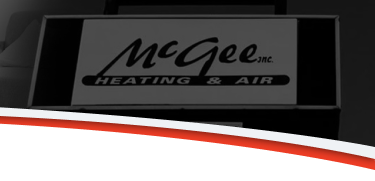It’s no secret that heating your Athens, GA, home over the winter accounts for a major household cost. Do you operate a furnace to heat your home? Read on to discover how manufacturers determine furnace efficiency, how it impacts your heating costs and the various factors affecting it.
Understanding Annual Fuel Utilization Efficiency
Annual fuel utilization efficiency (AFUE) is the measurement used to calculate how effectively furnaces convert fuel into heat. Specifically, it looks at the amount of heat created that goes into heating your home versus the amount wasted.
If a furnace has a 90% AFUE, that means that 90% of the heat created goes into heating your home. It wastes the remaining 10%, usually exiting the system through the furnace’s exhaust.
It’s important to understand that AFUE looks at ideal operating conditions and is the maximum efficiency it’ll achieve. Depending on your home’s particulars, the effective efficiency may be less.
Differences Between Standard and High-Efficiency Furnaces
Furnaces offer significant differences in their AFUE, and it’s one of the major factors in its cost. Older furnaces are less efficient than newer models, in part because of more recent mandated efficiency standards.
The current standard went into effect in 2015, with a minimum required 80% AFUE for all gas furnaces sold. Keep in mind that this simply means that any new models sold after January 2015 must meet this standard.
The 80% AFUE is the guideline for standard gas furnaces. However, high-efficiency furnaces have a rating somewhere between 90% and 98.5%.
What Makes Systems More Efficient?
Standard furnaces run on high during the entire heating cycle, which uses the most energy. High-efficiency furnaces have the ability to vary the heat production and amount of air circulated.
These high-efficiency furnaces have two-stage burners. It’ll use the low-heat first stage about 75% of the time to help maintain your home’s temperature, which uses less fuel. Extremely cold days or significant drops in your home’s temperature will activate the higher-heat second stage.
The circulating fan also consumes a lot of energy and doesn’t always need to run on high. High-efficiency models have either two-stage or variable-speed circulating fans. This allows the system to determine how much air circulation your home needs during a heating cycle.
Finally, high-efficiency furnaces have a second heat exchanger. This allows the circulating air to absorb even more heat from the exhaust before it vents outside. It’s this last part that has the biggest impact on AFUE.
How Furnace Efficiency Impacts Heating Costs
Given what efficiency measures, it makes sense that a more efficient system reduces your heating costs. However, let’s explore a little about how it actually works.
First, higher efficiency means the system is putting more of the heat into your home and less in the exhaust. This is why the second heat exchanger is so important, reducing wasted heat.
However, your home likely doesn’t need a system to blast high heat and a massive amount of circulating air. Rather, a smaller amount of warm air constantly circulating actually heats your home more consistently. This is why the variable speed fan and two-stage burner are important.
Even though your furnace may run longer using the lower speed and first stage, it consumes less energy. You maintain your home’s temperature while burning less fuel and using less electricity at the lower setting. Additionally, you put less wear on your system by having fewer cycle starts, which reduces furnace repairs.
Factors That Affect Your Furnace’s Operational Efficiency
Remember that your system’s AFUE isn’t the only thing that will ultimately affect its efficiency. Rather, other factors may reduce its efficiency, including:
- Dirty air filters.
- Neglected furnace maintenance.
- Blocked or closed vents.
- Poorly sealed or insulated ducts.
- Insufficient home insulation.
Keep your furnace operating at peak efficiency throughout its service life. Call McGee Heating & Air Inc. to schedule your furnace maintenance appointment with one of the expert service technicians today.
Image provided by iStock








